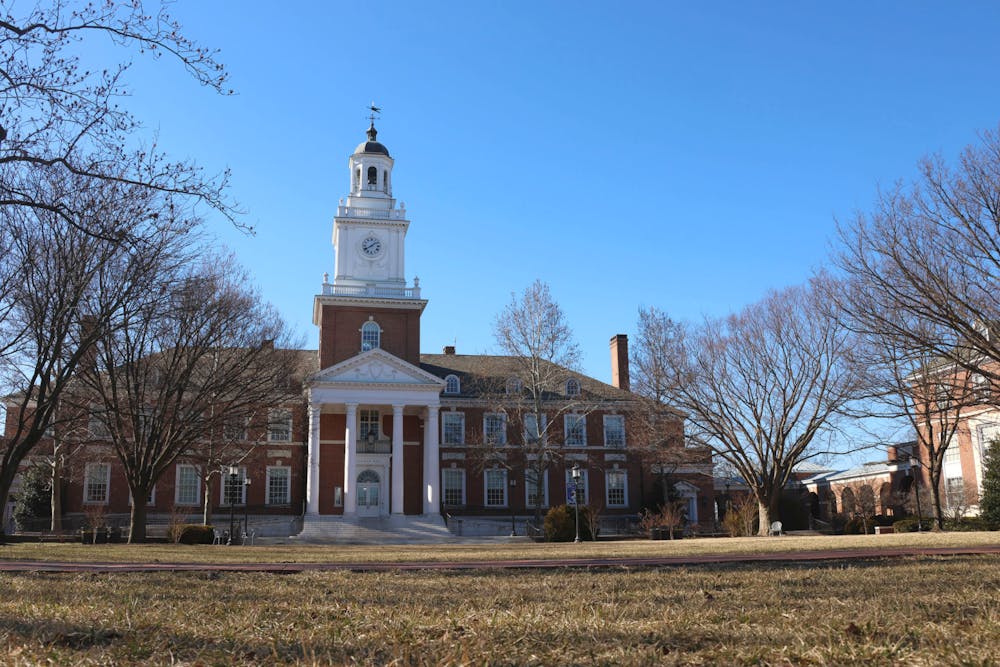As the end of semester approaches and we close out 2023, it is important to reflect back on the various shifts that have occurred in the University’s academic landscape. In our final editorial of the year, we review the pleasant surprises and disappointing setbacks we’ve seen from Hopkins in 2023.
This year, Hopkins grappled with major changes, most notably the end of affirmative action by the Supreme Court of the United States (SCOTUS). Later this month, students admitted to the Class of 2028 through Early Decision I will mark the first major cohort of Blue Jays accepted in accordance with the new policy. Despite the SCOTUS ruling, we are optimistic that Hopkins is committed to creating a class that represents a range of backgrounds and identities.
The News-Letter applauds the University’s decision to partner with QuestBridge, a national nonprofit that matches low-income students with top-ranked universities providing full four-year scholarships. We hope that the University continues to support first-generation and limited-income students, both through the application process and during their time at Hopkins.
Last semester, the University faced criticism for its failure to adequately support the Center for Africana Studies. Affiliates are disappointed that the University has not established a department for Africana Studies, limiting its resources and potential. We called on the University not only to make Africana Studies its own department but to broadly prioritize greater diversity in course offerings and hire more diverse faculty.
The University also published the Ten for One draft, a document outlining 10 goals that Hopkins seeks to achieve by the end of 2030. While this plan provides ambitious targets, we are critical of the University's reliance on buzzwords. By skirting the establishment of specific and measurable goals, Hopkins avoids accountability. We called on the University to outline the concrete steps necessary to realize some of the more ambiguous aims listed in the document.
As artificial intelligence (AI) became a hot topic on campus, we encouraged the University to clarify its academic integrity policies, providing students and professors with clear guidance in navigating the utilization of ChatGPT and other cutting-edge technologies.
Though the future of AI is uncertain, the University has not shied away from its use. In August, the University announced the creation of a new data science and translation institute. The institute, which will add 80 new affiliated faculty and 30 new Bloomberg Distinguished Professors to the Whiting School of Engineering, aims to unite experts in AI, machine learning and computer science to foster cross-disciplinary research across the University.
As part of the PILOT program, undergraduate students participated in an experimental initiative to supplement PILOT sessions with AI. Data collected from the study will be shared with the Center for Teaching Excellence and Innovation to support its research examining the impacts of AI tools on college students’ academic learning.
In September, the Johns Hopkins University Bloomberg Center at 555 Pennsylvania Avenue (the Hopkins Bloomberg Center) in D.C., the new home for the School of Advanced International Studies, opened its doors to students and faculty. The Hopkins Bloomberg Center is a state-of-the-art facility located minutes away from the U.S. Capitol and contains academic spaces for studying and collaboration.
Before the opening of the Hopkins Bloomberg Center, the University announced the launch of the Nexus Awards, a program that provided over $15 million in funds for faculty to research and teach courses at the new building. The inaugural year saw 102 scholars and researchers across all academic divisions in the University receive funding for their work.
In October, the University announced that the Hopkins Bloomberg Center would also be home to the School of Government and Policy, the first new academic division at Hopkins since 2007. We support the University’s initiatives to expand their academic endeavors beyond traditional STEM fields and hope that the School of Government and Policy will work in tandem with Hopkins’ research and scientific institutions to translate their work into policy.
Although these shiny additions to Hopkins are exciting and point to a bright future for the institution in D.C., Hopkins should not forget the importance of fostering a productive academic environment here at Homewood Campus. Milton S. Eisenhower Library will close this upcoming summer due to renovations, yet the University has not provided adequate alternative study spaces for students in its absence. Having a library is imperative for Hopkins to facilitate students’ learning and academic success, and we hope the University will soon announce plans for how to meet this basic need for students.
While we look forward to more exciting news in the year to come, we hope that the University does not neglect the more mundane issues, like providing students with a place to study and taking tangible steps to meet its lofty goals.





